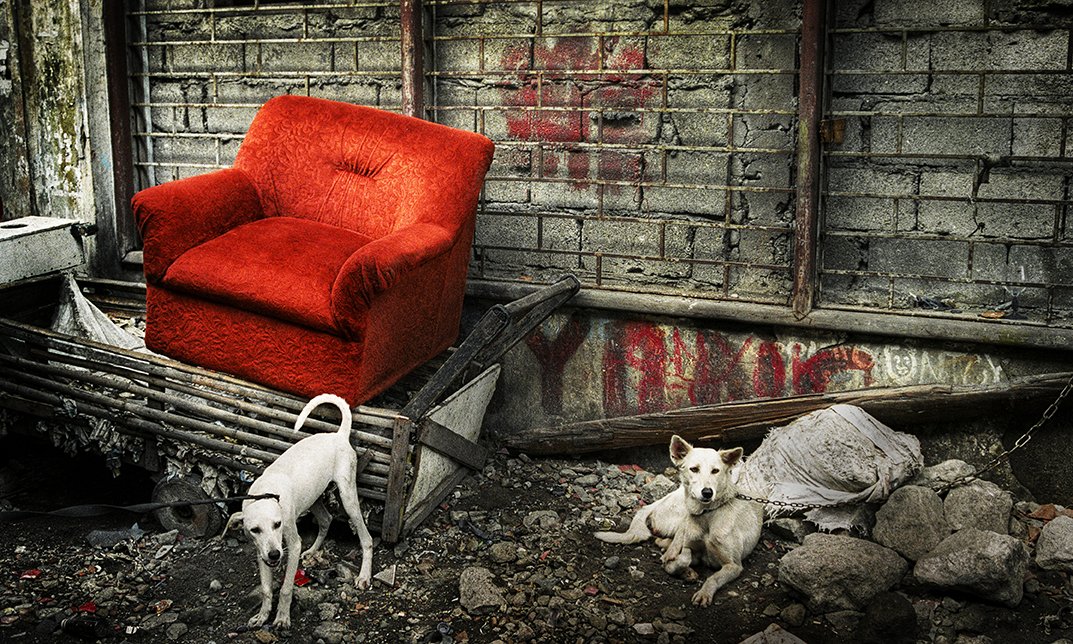THE recent indictment of a barangay tanod for the brutal killing of a Golden Retriever named Killua has shone light anew on current efforts to amend legislation on animal welfare, with a view to protecting both the animals and humans, amid an alarming surge in rabies cases.
“The barangay tanod who killed Killua has been indicted. This means the case is now People of the Philippines v. Anthony Solares and the trial will soon begin,” declared the advocacy group PAWS on its Facebook page. This announcement followed the finding by Prosecutor Wilhenry M. Villar of the Provincial Prosecution Service-Iriga City, who determined probable cause against Solares, allowing him to be charged with violating the Animal Welfare Act for killing the 3-year-old Labrador-Golden Retriever.
In the three-page resolution, the prosecutor, PAWS noted, had likened the Killua case to the 1855 case that US lawyer and politician George Vest argued for. He quoted: “when a neighbor killed his client’s dog, the neighbor took the life of more than just a pet—he killed an important family member.”
While the Office of the Prosecutor found no probable cause for charges of dog-meat trading under the Anti-Rabies Act, Solares will be tried for his act of cruelty under the Animal Welfare Act, PAWS added.

The maximum penalty for violation of the Animal Welfare Act of the Philippines is up to 3 years imprisonment and/or P250,000 if the convicted offender is a public officer or employee like Solares, a barangay tanod of Barangay Tres Reyes, Bato, Camarines Sur.
we can come up with a law enabling the
creation of a society where we can coexist
harmoniously with those beings which have
provided us with much love and loyalty.”
—Senator Grace Poe
“Improvement of our laws is ideal but no amount of lobbying for laws will lead to the prosecution of animal offenders if there is no criminal complaint filed by witnesses of animal abuse. PAWS is ready to support and stand by concerned citizens who take action and file these complaints,” the group said in its FB post.
Just last May, senators threw their support behind timely passage of an amendatory bill that will give more teeth to the Animal Welfare Act, by slapping stiffer penalties on those who abuse them, while also engendering a whole-of-society approach to ensuring communities are safe for both animals and humans.
Also last month, Health Secretary Teodoro J. Herbosa raised the alarm over the 13-percent rise in rabies cases in the first five months of 2024. In the Senate hearing on the amendatory bill filed by three senators, panel chair Cynthia Villar drew attention to the mind-boggling number of stray dogs and cats in the country, with a conservative estimate of 13 million. Such homeless animals pose a constant risk to humans, according to Sen. Grace Poe, a known animal welfare advocate, who drew attention to the Philippines’s dubious ranking as the sixth country with the highest rabies incidence.
95% case fatality rate
In flagging the 13-percent rise in human rabies cases from January to May this year, the DOH also reminded the public to get their pets vaccinated against rabies and to seek vaccination if they are bitten. This, after recording 169 human rabies cases from January to May this year, which is higher compared to the reported 150 cases in the same period in 2023.
As of May 11, 2024, Region XII (Soccsksargen) reported the highest number of cases, with 21.
This was followed by Regions IV-A (Calabarzon) and V (Bicol), with 18 cases each. Among the reported cases, 156 (92 percent) had a history of dog bites, 10 (6 percent) had a history of cat bites, and the remaining 3 cases involved bites from other animals.
Of the 169 reported cases, a total of 160 deaths have been reported, resulting in a case fatality rate of 94.67 percent. The status of the remaining 9 cases reported is still being verified.
“Rabies is a viral infection that can be transmitted to humans through animal bites or even scratches, most commonly by dogs and cats,” said Herbosa.
That rabies is preventable, and vaccination is the most effective measure to protect animals and humans, makes the dire situation even more tragic, DOH noted.
“Given the high percentage of cases involving dogs and cats, it is imperative that pet owners ensure their animals are vaccinated against rabies at 3 months old and every year thereafter. This not only protects the animals but also significantly reduces the risk of transmission to humans,” the DOH said.
“Death caused by rabies is inevitable once infection begins, that’s why we urge all pet owners to be responsible and get their pets vaccinated against rabies. This not only protects the animals but also significantly reduces the risk of transmission to humans. With this, we can eradicate rabies towards our journey to a Bagong Pilipinas kung saan Bawat Buhay ay Mahalaga,” Herbosa said.
In a press conference in April, Agriculture Secretary Francisco Tiu Laurel Jr. said around 22 million dogs and cats should be vaccinated against rabies in the country. He also stressed the need for a budget of at least P110 million.
The DOH said it supports this call for additional DA budget allocation for the widespread animal vaccination program, but it remains uncertain if such will be reflected in the proposed 2025 budget that the Executive will present to lawmakers after July’s opening of the third and last session of the 19th Congress.
Start in barangays—Poe
To Senator Poe, everything should start with the barangays, which need to be equipped with animal welfare programs to allow them to act effectively against cruelty incidents.
“An important question to ask is whether we have sufficient animal welfare programs in place and whether our communities—especially in rural areas—have adequate access to quality veterinary healthcare services,” she said.
“As first responders to animals in need, it’s imperative that barangay personnel are guided by policies and have the wherewithal to act,” Poe said at the Villar-led hearing on her Senate Bill No. 2458 seeking to strengthen the Animal Welfare Act.
On the national level, Poe said the responsibility of ensuring animal welfare falls under the purview of the Bureau of Animal Industry or BAI, a staff bureau of the Department of Agriculture (DA).
Under Republic Act 7160 or the Local Government Code, she noted that the delivery of veterinary services to the communities has been devolved to local government units. However, the Local Government Code mandates that only provinces and cities should have their own veterinarian officer.
“Hence, there is a reported shortage of veterinary personnel in smaller municipalities. And even cities that have veterinarians have to contend with inadequate resources,” Poe said.
“Ideally, the Department of Agriculture should be able to train and deputize animal welfare enforcement officers from the communities, the police for law enforcement, and members of animal welfare organizations such as those present here today, so that issues can be immediately taken cared of at the barangay level, in an effective but humane manner,” she added.
Poe’s bill aims to strengthen the DA in addressing animal welfare issues through a bureau that will be given sufficient budget and permanent personnel.
The measure aims to establish standards geared towards engendering responsible pet ownership, as well as ethical behavior and accountability from all those who have control over or provide care to animals.
The measure to amend the Animal Welfare Act of 1998 (amended by Republic Act 10631) is backed by Poe, and Senators Nancy Binay and Joel Villanueva. It seeks to fortify the animal provisions of the law and to create an Animal Welfare Bureau for the effective implementation and enforcement of the law.
It aims to strengthen the country’s animal welfare standards, policies, rules and regulations, implementation, and enforcement.
Senator Villar, whose committee conducted the last hearing, stressed that “the main problem that our country faces with regards to animals are stray, and neglect, with countless dogs and cats left to fend for themselves, often succumbing to hunger, disease, or accidents, overpopulation, the lack of education in terms of animal welfare, and responsible pet ownership.” She also pointed out “another issue is the trading and eating of dog meat.”
Stray animals, said Villar, are “mainly a human health hazard, because of the spread of diseases such as rabies, leptospirosis, and other parasites,” she noted.
Poe: Homeless animals urgent problem
Poe thanked Senator Villar for using her committee to hear the related concern about animal welfare, despite the pressing problems of the sector.
“Despite animals’ worth and value to human society, many animals are neglected, deliberately abandoned, starved to death in animal pounds, or fall victim to animal cruelty. On the other hand, some irresponsible pet owners have permitted their unvaccinated pets to cause nuisance, fear, or harm to their communities,” Poe said in her opening statement.
One major cause and effect of this maltreatment is the overpopulation of homeless animals, Poe said. According to the Mars Petcare Pet Homelessness Project report, there are a total of 13.11 million stray cats and dogs in the Philippines today.
Because strays lack proper care or vaccinations, rabies is most common in countries where stray dogs are present in large numbers. The Philippines is, in fact, ranked 6th among countries with the highest rabies incidence in the world.
Tragedy in animal pounds
Poe lamented that many animals are neglected, abandoned or starved to death in animal pounds, or fall victim to animal cruelty.
Reacting to the Petcare Pet Homelessness Project report that there are a total of 13.11 million stray cats and dogs in the Philippines today, Poe expressed hope that her bill “can spark a discussion whose time has come.”
Poe’s late father, Philippine action movie king and award-winning director Fernando Poe Jr., had often recalled the fate of his father, Fernando Poe Sr., who died of rabies at a relatively young age.
The amendatory bill thus comes as a seeming circle completion of sorts for the Poes. “With the help of all stakeholders, I am sure we can come up with a law enabling the creation of a society where we can coexist harmoniously with those beings which have provided us with much love and loyalty,” Poe added.











